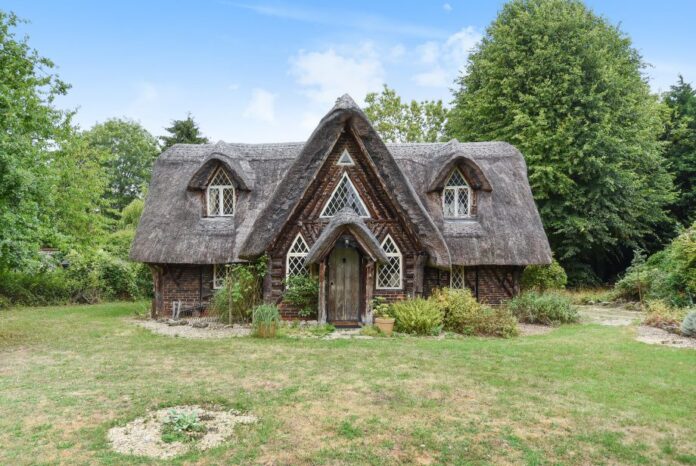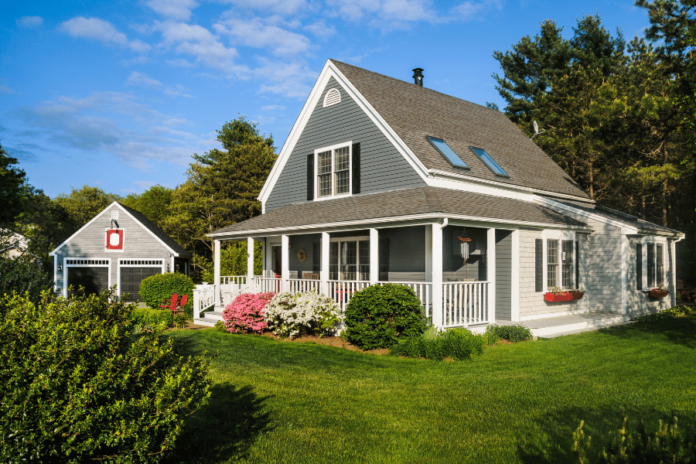Deciding to sell your Canadian cottage can be a challenging decision to make. Whether you are selling it in the hope of upgrading to a new cottage or have decided that it is too much hassle to maintain several properties, there are several significant factors to consider when putting your cottage on the market.
Tax on profit from the sale of an asset


Selling a property in Canada with the Canadian countryside market that isn’t your main home means you’ll owe capital gains tax on any profits you earn. But with some careful planning, you can take advantage of a few tax breaks to minimize the sting.
Before you sit down with a real estate agent or put up a for-sale sign, make sure you understand the nuances of the tax rate that might apply to your profit from the sale.
Certain conditions and deductions could help you pay less to the tax man. And remember, tax policies can change. It’s important to be on top of the rates and rules that apply to rental properties or vacation homes.
Boost Your Adjusted Cost Base (ACB)
The formula that you would use for figuring out capital gains is to calculate your cost base and then subtract it from your proceeds and, you end up with approximately the gain. In other words, subtract the adjusted cost base, which is what you paid for your cottage, along with any closing costs from the proceeds of the sale.
By increasing the Adjusted Cost Base (ACB), you can reduce the amount needed for the capital gains tax. The ACB includes any improvements or attachments you have made to your property, such as constructing a new deck or boathouse. Find any renovation receipts for your property and make sure to include them in the ACB.
For example, if you’ve done anything to enhance the property, additional building, a boathouse, a new garage, a new deck, or something that’s added value or extended the life of the property, locate receipts for said renovations, add it to your cost base and, that will ultimately lower your exposure to capital gains tax on the sale of the property given that you’ve made some improvements to it.
Strategically time your sales


As the capital gains tax is determined by your income tax bracket, strategically listing your cottage for sale during a period in which your income tax bracket is substantially lower than usual, such as when you’re on an extended leave of absence or planning to retire, can be extremely beneficial.
It’s not that much of a stretch to argue for listing your cottage during a year in which your income is nearly zero. Why? Because doing so would bring down your tax liabilities and secure you a better selling price.
Before putting your home on the market, make any necessary repairs
A significant number of Canadian Cottages have been in the families for decades and, in some instances, for generations. Depending on the level of management, and some other natural causes, wear and tear of time can take their toll. While you may not worry about these minor defects, they could cause a potential buyer to pause.
Most buyers seek perfection, at least in terms of structural integrity, when it comes to a holiday property. It is certainly no fun to think about spending time and money on repair work just after buying a prized home away from home.
Most buyers will weigh their investments properly and carefully consider the amount of repairs to be done on a propert. As a result, een if a certain home looks perfect in terms of its appeal, enhanced listing features and information, and price, it will not sell at ANY PRICE if it’s considered a fix-up.
One way to attract potential buyers back to your holiday property again and again is to ensure it is always in tip-top show condition. Interestingly, some people will like your boho chic holiday property while others will be turned off by it.
Be cautious when setting prices that are excessively high
Excessive emotional bonding with one’s cottage can wind up inflating its value. Overpricing could alienate prospective buyers, and a pattern of gradual markdowns, and overlong residence on the market can turn off potential buyers unaware of any property defect.
Mobilizing your real estate agent’s expertise to determine a price that reflects the true market trend will speedily and smoothly dispose of your cottage. The experiences of the vendor of the Haliburton, Ontario, waterfront cottage at 3196 West Shore Road illuminate yet another facet of this recurrent defiance of the market.
Managing Seasonal and Regional Differences in the Market


Seasonal fluctuations can significantly impact the cottage market in Canada. While summer may seem like the ideal time to showcase your waterfront retreat, different regions might have unique peak times.
For example, cottages in ski regions like the Laurentians in Quebec might attract more buyers during the winter months. Understanding the seasonal preferences in your region can help you choose the optimal time to list your property, ensuring it receives maximum exposure when buyer interest is at its peak.
Work with a Local Real Estate Expert
Partnering with a real estate agent who specializes in cottage properties and understands the local market intricacies is crucial. These professionals can provide valuable insights into pricing strategies, buyer trends, and marketing tactics specific to your area.
They can also navigate the complexities of rural property sales, which might involve unique challenges such as septic systems, water access rights, and land use regulations. Their expertise can be indispensable in avoiding common pitfalls and streamlining the selling process.
Prepare for a Smooth Transition
Preparing for the handover to the new owners is another essential step. This involves ensuring that all documentation is up-to-date, including property surveys, compliance with local building codes, and any rental or property management agreements if applicable.
It’s also thoughtful to prepare a comprehensive guide for the new owners, detailing how to maintain the cottage throughout the year, recommendations for local service providers, and tips on enjoying the community to the fullest.
Highlight Lifestyle Benefits


When marketing your cottage, focus on the lifestyle and experiences that the property can offer potential buyers.
High-quality, professional photographs and videos showcasing the beauty and amenities of the cottage during different seasons can be highly effective.
Additionally, highlighting nearby attractions such as national parks, hiking trails, and community events can enhance the appeal, showing buyers the unique lifestyle benefits that come with the property.
Offer Flexible Viewing Options
Finally, consider offering flexible viewing options to accommodate potential buyers, including virtual tours or scheduled private showings. This approach is particularly beneficial for buyers who may be traveling from afar or have limited availability.
By facilitating access to the property through various means, you increase the likelihood of a quicker sale, appealing to a broader range of buyers who might be interested in making your cottage their next holiday home or investment property.







